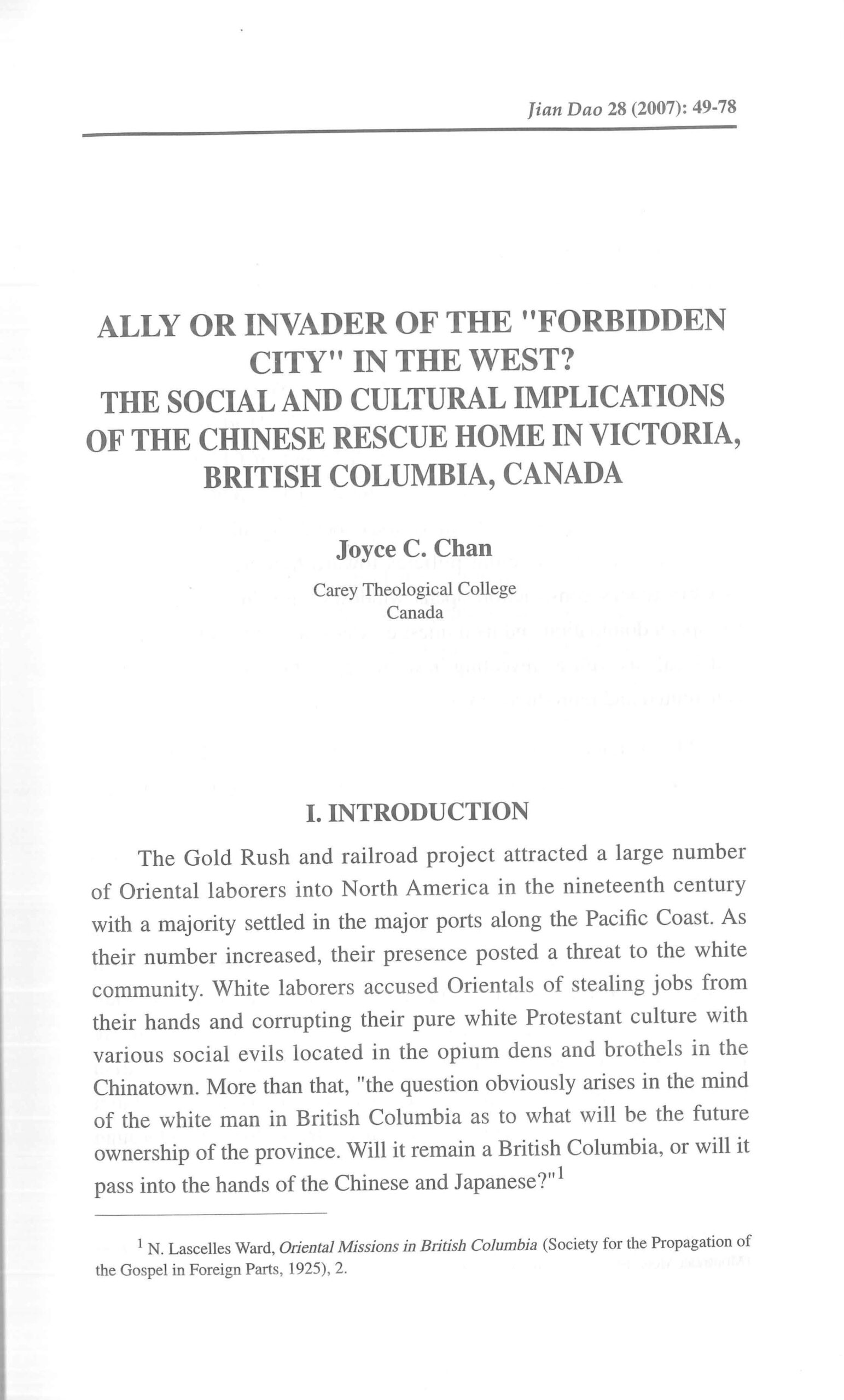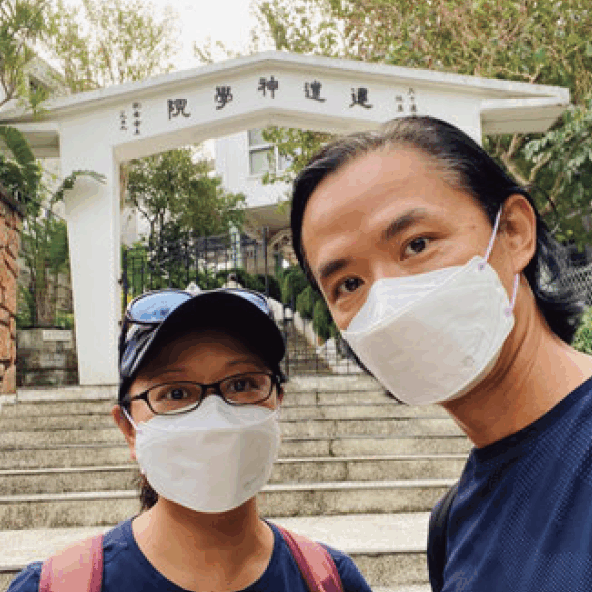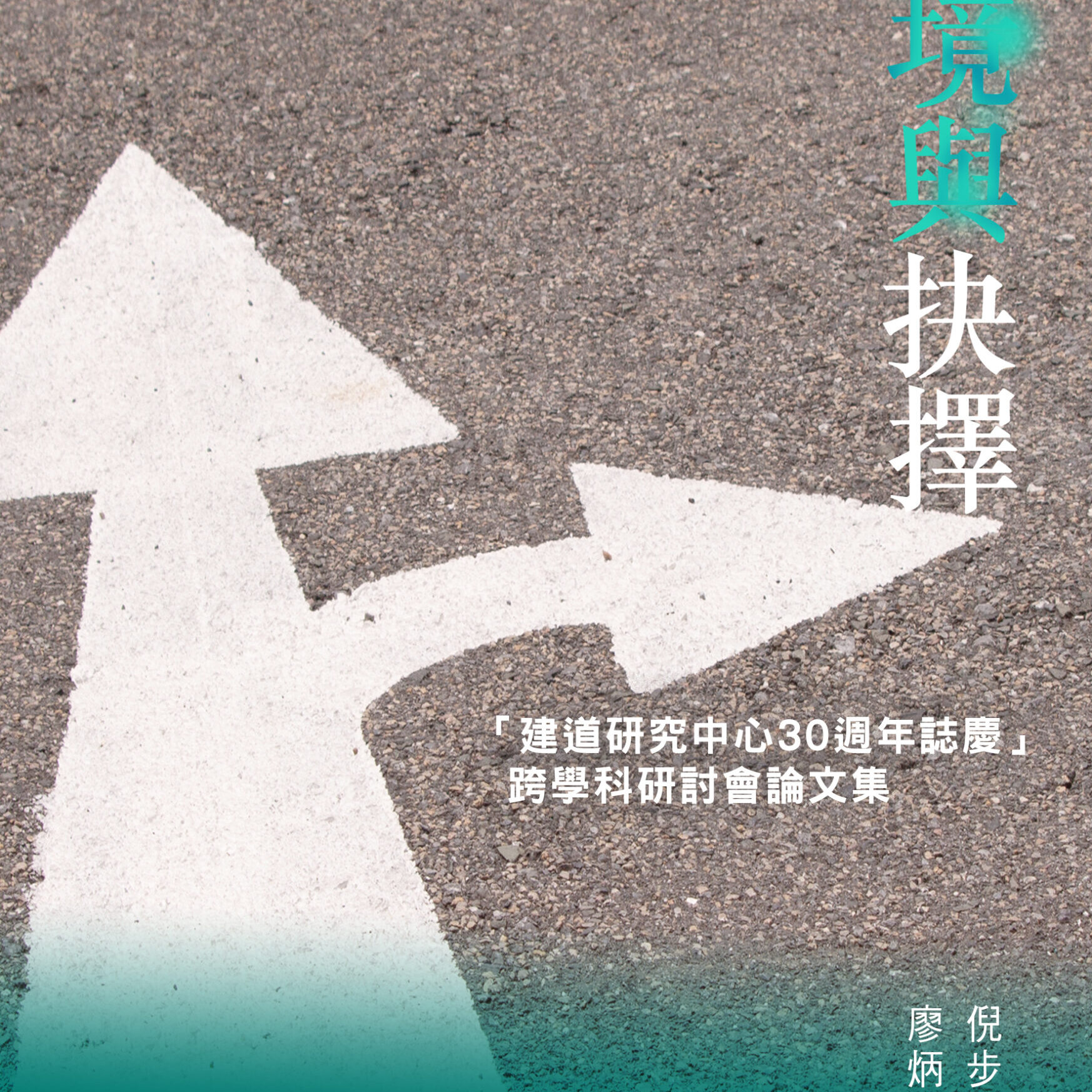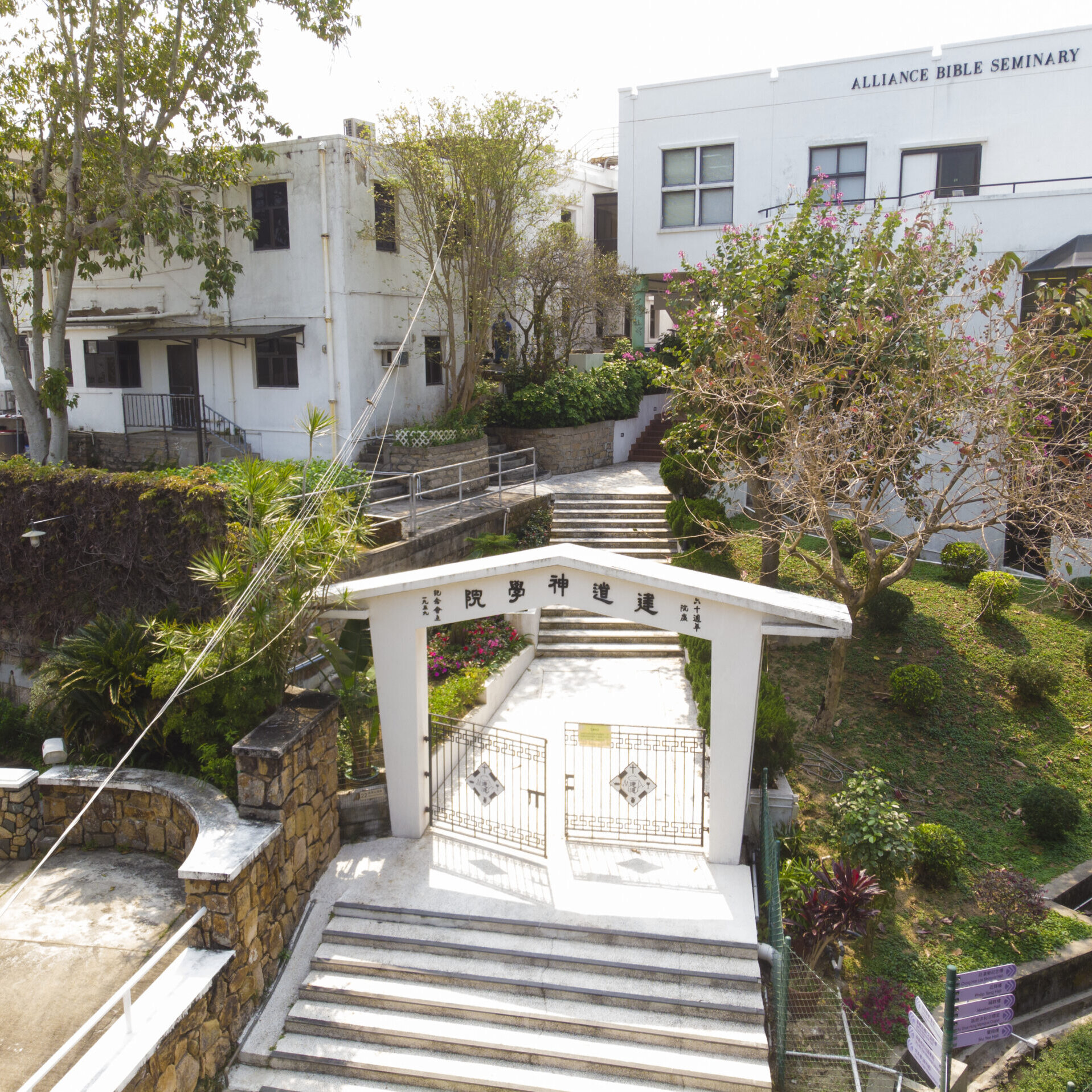Ally Or Invader Of The "Forbidden City" In The West? The Social And Cultural Implications Of The Chinese Rescue Home In Victoria, British Columbia, Canada(是敵?是友?──分析卑詩省維多利亞華人婦女及兒童庇護所對加國社會文化帶來之影響)/余陳頌恩
撮要
十九世紀末,隨着尋金熱和鐵路的興建,大量「有色人種」湧入北美,引起主流社會白人羣體的恐慌。為了保障白人群體的利益和安全,這些新移民被趕到「少數族裔聚居地」,與主流社會斷絕接觸,且受到歧視和不公平的對待。這些小數族裔聚居地,像唐人埠,有如隔離病房,是一般白人絕不會進入的「禁地」。宣教士卻勇敢地打破主流社會對族裔的歧視眼光,主動進入這些有色人種中間,並在「禁地」的範圍內設立福音據點。本文嘗試從加國宣教士在華埠所設立的福音據點——華人婦女及兒童庇護所(Chinese Rescue Home)的真實故事,觀察東西方文化的異同,分析這事工對當時加國華人社會文化所帶來的影響,特別是性別角色的概念。
ABSTRACT
The overwhelming influx of “colored-aliens” into the North American society brought by the Gold Rush and railroad projects in the nineteenth century aroused much fear from the white community. Ethnic ghettos emerged as a result of restrictions imposed upon the Orientals while at the same time, served as a defense mechanism for the discriminated newcomers. No respectable white person would step into ethnic ghetto such as Chinatown – the “forbidden city” in the West. However, Christian missionaries took courage to penetrate into this “forbidden city” and established a base to reach the Asian immigrants. Stories of the Chinese Rescue Home in Victoria, British Columbia reveal the conflicts between the Eastern and the Western cultures. This paper attempts to analyze the social and cultural implications of this Western establishment in the Chinese community, especially in terms of gender role issue.
原載於《建道學刊》28期(2007年7月),頁49-78。
最新文章
【畢業生分享】重新導航──導引一生的神 / 王雅君
2026 年 1 月 1 日
【畢業生分享】屬靈導引的生命體會——與上主同工的旅程 / 黃芳
2026 年 1 月 1 日
【校本部學生分享】重拾與主同行的節奏——依納爵神操旅程反思 / 鄭家恩
2026 年 1 月 1 日
編輯精選
[電子書]困境與抉擇:「建道研究中心30週年誌慶」跨學科研討會論文集/廖炳堂、倪步曉主編
2025 年 1 月 2 日
從梧州到長洲:建道神學院125年的挑戰與恩典 / 陳智衡
2023 年 10 月 1 日
微小教會的見證/高銘謙
2023 年 6 月 1 日







